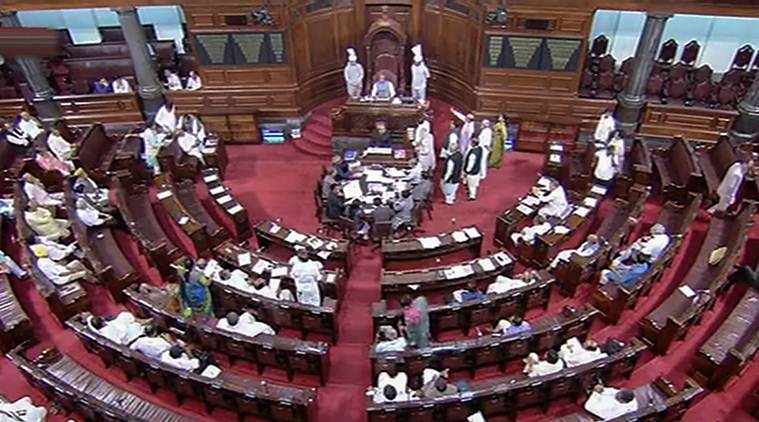Parliament Monsoon Session: Opposition members expressed their apprehensions over the changes in the DNA Bill, the human rights Bill and the Jallianwala Bagh memorial Bill.
With the Centre launching its legislative agenda by introducing eight Bills in the Lok Sabha on Monday, the Opposition accused the government of curbing the fundamental rights of citizens in the name of tackling terror. The government maintained that it has adopted “zero tolerance” to terrorism, and legislative measures were important.
The government moved amendments to the Unlawful Activities (Prevention) Amendment Bill, 2019, National Investigation Agency (Amendment) Bill, 2019, Protection of Human Rights (Amendment) Bill, 2019, Consumer Protection Bill, 2019, Public Premises (Eviction of Unauthorised Occupants) Amendment Bill, 2019, Jallianwala Bagh National Memorial (Amendment) Bill, 2019, Central Universities (Amendment) Bill, 2019 and the DNA Technology (Use and Application) Regulation Bill, 2019.
Opposition members expressed their apprehensions over the changes in the DNA Bill, the human rights Bill and the Jallianwala Bagh memorial Bill.
The proposed changes to the UAPA Bill were opposed by RSP leader N K Premachandran, Congress MP Shashi Tharoor, IUML MPs E T Mohammed Basheer and P K Kunhalikkuty, who said the provisions in the amended law could be misused as it was a “law to detain”.
Premachandran said the fundamental rights of an individual cannot be ignored in the name of tackling terror. He said there is no clarity in the government’s claim that the NIA finds it difficult to deal with such individuals and that the House should not be kept in the dark. He recalled that POTA, brought in by the Atal Bihari Vajpayee-led government, was repealed as it led to “abuse of power” by authorities.
However, MoS (Home) G Kishan Reddy, who introduced the Bill on behalf of Home Minister Amit Shah, said when the United Nations can name Jamaat-ud-Dawah chief Hafiz Saeed as a terrorist then why can’t India do the same. He said a provision is needed to designate “individual terrorists” in the law.
Shah intervened to ask if the Opposition would like to withdraw objections as these would not look good in the records of Lok Sabha.
Moving a Bill that seeks to give powers to the NIA to probe terror attacks targeting Indians and Indian interests on foreign soil, Reddy said the legislation will also allow the agency to probe cyber crimes and human trafficking.
However, Tharoor opposed the amendments, saying the courts already have a huge backlog and alleged that the Bill was “not based on logic” and was a “piecemeal” legislation. The Congress leader also opposed the NHRC Bill which proposes that a retired Supreme Court judge can also be considered for the chairperson’s position, currently reserved for former Chief Justice of India. He said the proposed changes have completely ignored the NHRC’s request for more powers.
Leader of Congress Adhir Ranjan Chowdhury alleged that the move was an attempt to undermine the institution.
However, Reddy said the changes were in line with Paris principles on strengthening the agency.
Chowdhury also termed the DNA Bill a bid to violate fundamental rights. He said the DNA of undertrials could be collected without court orders and there is no provision of consent on the storage of DNA data in the “flawed” Bill.
Tharoor said this would lead to institutionalisation of surveillance regime and wondered why the government has introduced the changes before bringing in data protection laws.
However, Union Minister Harsh Vardhan said the members could express their concern during the discussion and the government would address them.
Source: Read Full Article


